Ditapis dengan
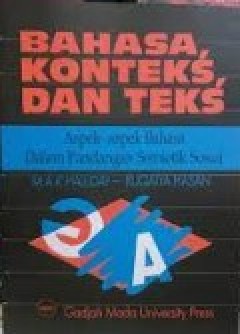
Bahasa, Konteks, dan Teks : Aspek-aspek Bahasa Dalam pandangan Semiotik Sosial
- Edisi
- Cetakan ke-2
- ISBN/ISSN
- 979-420-236-3
- Deskripsi Fisik
- viii + 181 hlm.; 21 cm.
- Judul Seri
- -
- No. Panggil
- 400 HAL b
- Edisi
- Cetakan ke-2
- ISBN/ISSN
- 979-420-236-3
- Deskripsi Fisik
- viii + 181 hlm.; 21 cm.
- Judul Seri
- -
- No. Panggil
- 400 HAL b

New Development in Systemic Linguistic Volume I : Theory and Description
- Edisi
- First Published
- ISBN/ISSN
- 0-86187-636-9
- Deskripsi Fisik
- x + 297 pgs.; 23 cm.
- Judul Seri
- -
- No. Panggil
- 410 NEW n1
- Edisi
- First Published
- ISBN/ISSN
- 0-86187-636-9
- Deskripsi Fisik
- x + 297 pgs.; 23 cm.
- Judul Seri
- -
- No. Panggil
- 410 NEW n1
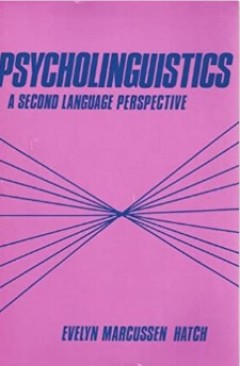
Psycholinguistics : A Second Language Perspective
- Edisi
- First Published
- ISBN/ISSN
- 0-88377-250-7
- Deskripsi Fisik
- ix + 266 pgs.; 23 cm.
- Judul Seri
- -
- No. Panggil
- 401.9 HAT p
- Edisi
- First Published
- ISBN/ISSN
- 0-88377-250-7
- Deskripsi Fisik
- ix + 266 pgs.; 23 cm.
- Judul Seri
- -
- No. Panggil
- 401.9 HAT p
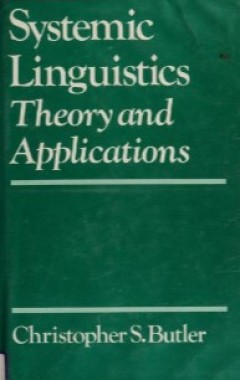
Systemic Linguistics Theory and Applications
- Edisi
- First Published
- ISBN/ISSN
- 0-7134-3705-7
- Deskripsi Fisik
- ix + 259 pgs.; 21,5 cm.
- Judul Seri
- -
- No. Panggil
- 410 BUT s
- Edisi
- First Published
- ISBN/ISSN
- 0-7134-3705-7
- Deskripsi Fisik
- ix + 259 pgs.; 21,5 cm.
- Judul Seri
- -
- No. Panggil
- 410 BUT s

Sosiolinguistik : Suatu Pengantar
- Edisi
- Cetakan ke-2
- ISBN/ISSN
- -
- Deskripsi Fisik
- viii + 83 hlm.; 20,5 cm.
- Judul Seri
- -
- No. Panggil
- 400.14 NAB s
- Edisi
- Cetakan ke-2
- ISBN/ISSN
- -
- Deskripsi Fisik
- viii + 83 hlm.; 20,5 cm.
- Judul Seri
- -
- No. Panggil
- 400.14 NAB s
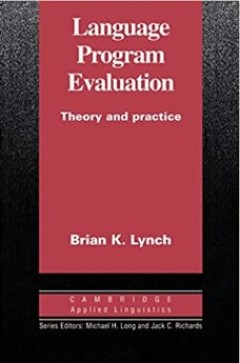
Language Program Evaluation : theory and Practice
Although much has been written about the testing and evaluation of language students, few books have dealt with the much broader issue of measuring the success of language programs. Filling a critical gap in the literature of applied linguistics, Language Program Evaluation provides teachers, researchers, and administrators with a complete introduction to both qualitative and quantitative appro…
- Edisi
- First Published
- ISBN/ISSN
- 0-521-48191-0
- Deskripsi Fisik
- xiv + 194 pgs.;
- Judul Seri
- -
- No. Panggil
- 418.007 LYN l
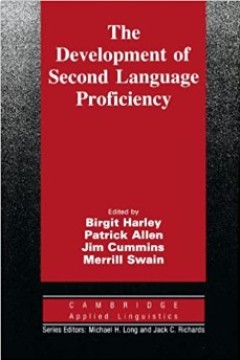
The Development of Second Language Proficiency
This text presents the findings of a major investigation of second language proficiency in various groups of school-aged learners. It invites a frank appraisal of the research from an outside panel of experts. The theoretical and practical implications of the study are the subject of a lively debate focused on three main research issues: the nature of second language proficiency, the impact of …
- Edisi
- First Published
- ISBN/ISSN
- 0-521-38410-9
- Deskripsi Fisik
- xiv + 248 pgs.; 22,5 cm.
- Judul Seri
- -
- No. Panggil
- 418.007 DEV d
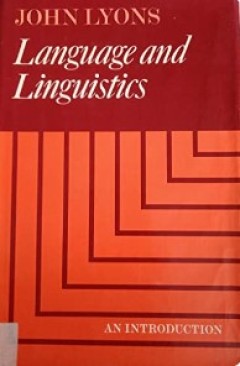
Language and Linguistics
- Edisi
- First Published
- ISBN/ISSN
- 0-521-23034-9
- Deskripsi Fisik
- xi + 356 pgs.; 21,5 cm.
- Judul Seri
- -
- No. Panggil
- 410 LYO l
- Edisi
- First Published
- ISBN/ISSN
- 0-521-23034-9
- Deskripsi Fisik
- xi + 356 pgs.; 21,5 cm.
- Judul Seri
- -
- No. Panggil
- 410 LYO l
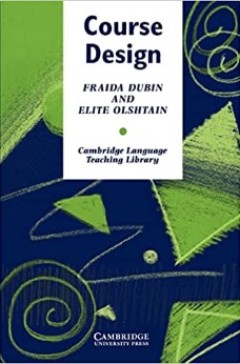
Course Design : Developing Programs and Materials for Language Learning
Recognizing that teachers are often involved in planning and developing courses as part of their responsibilities, the authors have set out to describe the factors which must be considered in constructing courses and materials. They cover: the fact-finding stage, establishing realistic goals, surveying existing programmes, realizing goals through instructional plans, selecting the shape of the …
- Edisi
- Seventh Published
- ISBN/ISSN
- 0-521-25676-3
- Deskripsi Fisik
- ix + 194 pgs.; 23 cm.
- Judul Seri
- -
- No. Panggil
- 428.0071 DUB c
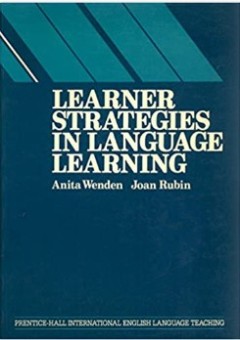
Learner Strategies in Language Learning
What do second language learners do to learn a second language? How do they manage or self-direct these efforts? What do they know about their language learning process? How can their skills be refined and developed? The papers presented in this collection address these theoretical and practical concerns. They report on research that demonstrates that second language learners bring a varied ra…
- Edisi
- First Published
- ISBN/ISSN
- 0-13-527110-X
- Deskripsi Fisik
- xvii + 181 pgs.; 23,5 cm.
- Judul Seri
- -
- No. Panggil
- 418.007 WEN l
 Karya Umum
Karya Umum  Filsafat
Filsafat  Agama
Agama  Ilmu-ilmu Sosial
Ilmu-ilmu Sosial  Bahasa
Bahasa  Ilmu-ilmu Murni
Ilmu-ilmu Murni  Ilmu-ilmu Terapan
Ilmu-ilmu Terapan  Kesenian, Hiburan, dan Olahraga
Kesenian, Hiburan, dan Olahraga  Kesusastraan
Kesusastraan  Geografi dan Sejarah
Geografi dan Sejarah